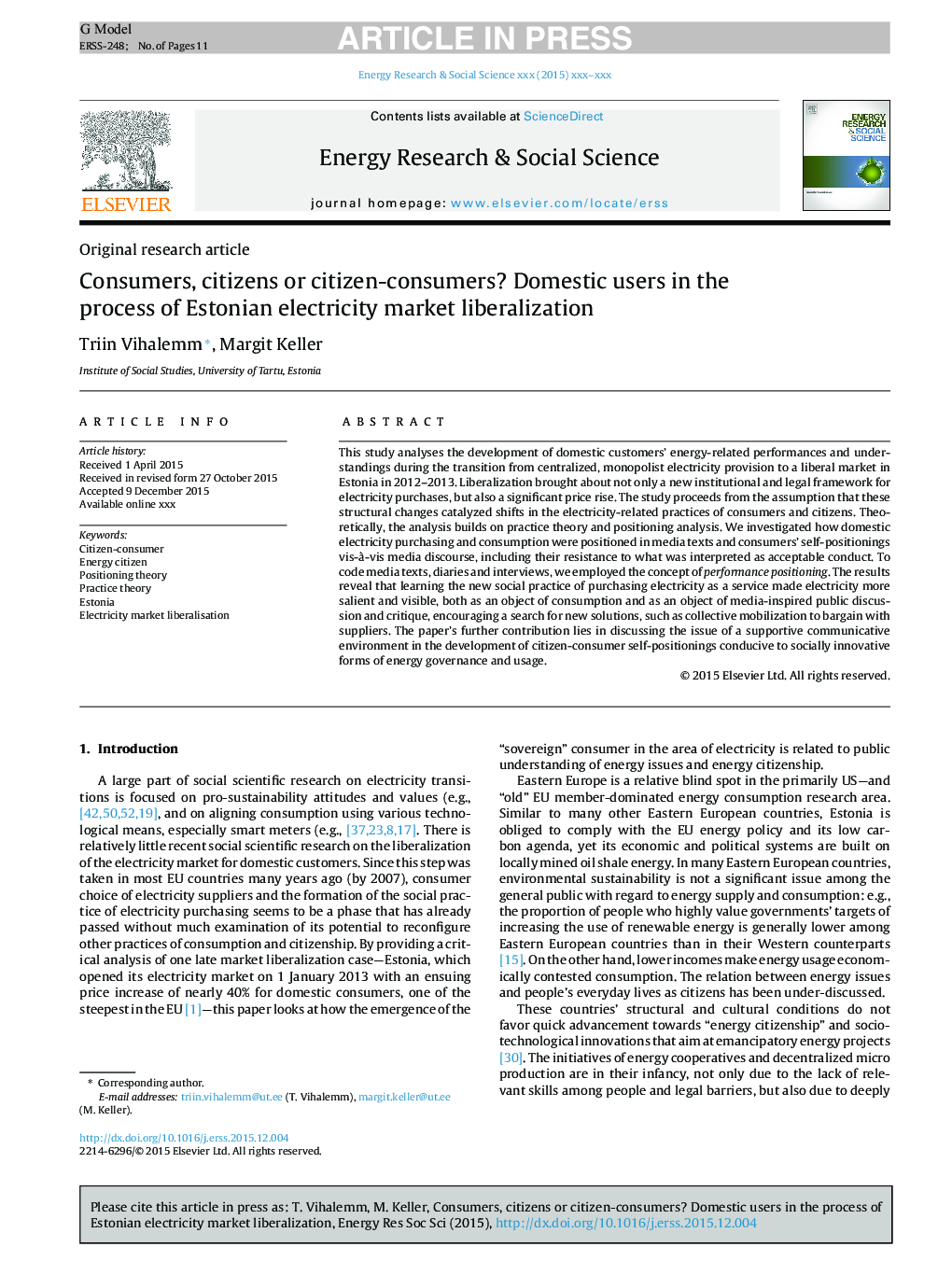| Article ID | Journal | Published Year | Pages | File Type |
|---|---|---|---|---|
| 6558244 | Energy Research & Social Science | 2016 | 11 Pages |
Abstract
This study analyses the development of domestic customers' energy-related performances and understandings during the transition from centralized, monopolist electricity provision to a liberal market in Estonia in 2012-2013. Liberalization brought about not only a new institutional and legal framework for electricity purchases, but also a significant price rise. The study proceeds from the assumption that these structural changes catalyzed shifts in the electricity-related practices of consumers and citizens. Theoretically, the analysis builds on practice theory and positioning analysis. We investigated how domestic electricity purchasing and consumption were positioned in media texts and consumers' self-positionings vis-Ã -vis media discourse, including their resistance to what was interpreted as acceptable conduct. To code media texts, diaries and interviews, we employed the concept of performance positioning. The results reveal that learning the new social practice of purchasing electricity as a service made electricity more salient and visible, both as an object of consumption and as an object of media-inspired public discussion and critique, encouraging a search for new solutions, such as collective mobilization to bargain with suppliers. The paper's further contribution lies in discussing the issue of a supportive communicative environment in the development of citizen-consumer self-positionings conducive to socially innovative forms of energy governance and usage.
Related Topics
Physical Sciences and Engineering
Energy
Energy (General)
Authors
Triin Vihalemm, Margit Keller,
